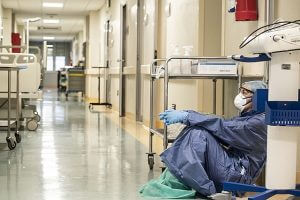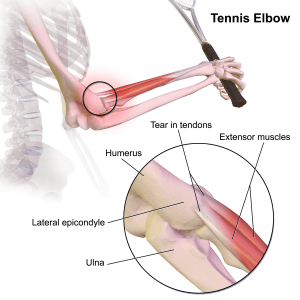Overview
Severe acute respiratory syndrome- SARS-CoV-2 is the highly transmissible virus that causes coronavirus. SARS-CoV-2 is the leading cause of respiratory illness.
In 2002 and 2012, two contagious viruses emerged as MERS-CoV (Middle East respiratory syndrome coronavirus) and SARS-CoV (severe acute respiratory syndrome coronavirus). These viruses were responsible for several respiratory illnesses and the mortalities of millions of people. In the year 2019, at the end of November originated a new and modified form of the SARS-CoV as SARS-CoV 2, which had its origin from Wuhan, China. Novel SARS-CoV 2 is a highly contagious and fatal virus.
This virus surpasses the previous infections in terms of its episodes, infected people ratio, and severity. At the end of January 2020, WHO declared this infection as a global health emergency due to its emerging cases and transmission from one country to the whole world. Regarding genome sequencing of SARS-CoV 2, it resembles MERS-CoV about 50% and 79% identical to SARS-CoV. This virus has 90% amino acid/protein resemblance with its parent virus as SARS-CoV 1. Research is being carried out to treat COVID-19 and prevent infection with SARS-CoV-2.
Signs and Symptoms
SARS-CoV 2 infection has variable symptoms and signs in different individuals. This infection is a respiratory infection that is transmissible through air particles, contact, and touch. Therefore, many contracted patients do not feel symptoms at all (asymptomatic) throughout their infection phase.
However, other patients may experience mild, moderate, or severe symptoms of infection as:
Common Symptoms
- High fever and chills
- SOB (shortness of breath) and dry cough (without sputum)
- Lethargy or fatigue (feeling of tiredness throughout the day and night)
- Headaches and body muscle aches
- Rhinorrhea (runny nose) or congestion of the nose
- Sore throat leading to the painful intake of solid food
- Diarrhea
- Vomiting and nausea
- Loss of smell and taste (in most of the cases)
- Skin rashes
- Conjunctivitis
These most common symptoms may last from 4-15 days after contracting the virus. After this time, the patient is usually free of viruses. However, if you are experiencing severe symptoms, seek medical assistance immediately.
Serious Symptoms
The severe symptoms of COVID-19 or SARS-CoV 2 infection require immediate hospital or intensive care, which are:
- Chest pain
- Confusion
- Face and lip discoloration
- Signs of stroke
- Extreme trouble in breathing
Risk Factors
Risk factors are those few things that can make an individual more vulnerable to disease. In the case of SARS-CoV 2 infection, the most common risk factors are patients with:
- Weak immunity as children and elderly population with less potent immunity against infection
- Malignancies as cancer or any tumor
- The serious cardiovascular problem as cardiac failure, cardiomyopathy (problem with heart’s muscles), and CAD (coronary artery disease)
- Hypertension (high blood pressure)
- Obesity or BMI (body mass index) more than 30
- Smoking and chronic kidney diseases
- Organ transplantation
- Asthma and pregnancy
- Different chronic lung diseases as COPD, pulmonary fibrosis, and cystic fibrosis
- Diabetes, either type I or II
- The psychological deficit as dementia or downs syndrome
- Liver diseases
- Alcohol abuse or substance abuse
- HIV or AIDS infection
Diagnosis
The primary source of SARS-CoV 2 infection diagnosis is PCR (polymerase chain reaction) testing.
After collecting the sample, the PCR technique looks for the virus’s genome by extracting nucleic acid from the virus. Two genes in SARS-CoV 2 show either positive (both genes present) or negative results (both genes absent). The results of these PCR tests may take a day or two to conclude your diagnosis.
Blood tests are another source of detecting the development of antibodies in response to disease. The presence of antibodies in the blood depicts the infection in the recent past.
Now, FDA is approving the use of home testing kits for testing your infection. With the help of these kits, patients can collect their samples and mail them to laboratories for the tests.
Treatments
With abrupt research and immediate investigation, several treatments are available for the SARS-CoV 2 infection symptoms.
Medications
Several medications work against this viral infection as:
- Dexamethasone – a corticosteroid that is anti-inflammatory and works against immune hyperactivity damaging the organs of the infected patient
- Tocilizumab – an immunosuppressive drug used to treat different autoimmune disorders. It is helpful for patients who need ECMO (extracorporeal membrane oxygenation) as a heart-lung bypass machine, mechanical ventilator, or oxygen supply. This medicine helps in blocking the action of IL-6 (interleukin 6), which produces inflammation in the body as a response to hyper-immune response.
- Remdesivir and baricitinib– as respiratory support for adults and children
- Blood thinners or anticoagulation drugs – low dose enoxaparin or heparin to prevent blood clotting
Convalescent Plasma
Plasma from the blood of already recovered patients can also help in fighting against this infection.
Antibodies can strengthen the immune system of the patient to battle against the disease by activating the body’s immunity
Prevention
The best technique for prevention against SARS-CoV 2 is distance or social distancing. Coronavirus disease is contagious which can travel from one person to another. Therefore, it is recommended to keep a safe distance from the patient to avoid its spread.
Moreover, your protection is the most vital step for your health. Use of mask, eye shields, and gloves is recommended for red zone areas (high risk of virus presence). However, in normal gatherings, you must make it compulsory to wear a mask and avoid physical contact with anybody around you.
Vaccination is the best possible way to avoid virus contraction and its spread. Several medicines are available in the world with different brand names. Therefore, make vaccination your utmost priority to prevent the spread of COVID-19.
Immune-boosting supplements and natural foods are the best way to improve your body strength. Vitamin D is the best source of immunity against this infection. You can take a daily dose of vitamin D through the natural sunlight source.
After work, you should make a habit of taking steam. Steam can minimize the risk of virus entry inside the respiratory tract. In addition, steam can trap the virus in the respiratory tract and inhibit its entry into the lungs to cause pneumonia.
- Hoehl S, Rabenau H, Berger A, Kortenbusch M, Cinatl J, Bojkova D, Behrens P, Böddinghaus B, Götsch U, Naujoks F, Neumann P. Evidence of SARS-CoV-2 infection in returning travelers from Wuhan, China. New England Journal of Medicine. 2020 Mar 26;382(13):1278-80. https://www.nejm.org/doi/full/10.1056/nejmc2001899
- Arons MM, Hatfield KM, Reddy SC, Kimball A, James A, Jacobs JR, Taylor J, Spicer K, Bardossy AC, Oakley LP, Tanwar S. Presymptomatic SARS-CoV-2 infections and transmission in a skilled nursing facility. New England journal of medicine. 2020 May 28;382(22):2081-90. https://www.nejm.org/doi/full/10.1056/nejmoa2008457
- Deeks JJ, Dinnes J, Takwoingi Y, Davenport C, Leeflang MM, Spijker R, Hooft L, Van den Bruel A, Emperador D, Dittrich S. Diagnosis of SARS‐CoV‐2 infection and COVID‐19: accuracy of signs and symptoms; molecular, antigen, and antibody tests; and routine laboratory markers. Cochrane Database of Systematic Reviews. 2020(4). https://www.cochranelibrary.com/cdsr/doi/10.1002/14651858.CD013596/abstract
- Castells MC, Phillips EJ. Maintaining safety with SARS-CoV-2 vaccines. New England Journal of Medicine. 2021 Feb 18;384(7):643-9. https://www.nejm.org/doi/full/10.1056/nejmra2035343
- Kemp SA, Collier DA, Datir RP, Ferreira IA, Gayed S, Jahun A, Hosmillo M, Rees-Spear C, Mlcochova P, Lumb IU, Roberts DJ. SARS-CoV-2 evolution during treatment of chronic infection. Nature. 2021 Apr;592(7853):277-82. https://www.nature.com/articles/s41586-021-03291-y?fbclid=IwAR2oXAdfZOaXrfNnvf0JzRH2Pz-HgM96eWd1PCmV9mqlWQW0Itm5nUGOZtU
- Li H, Zhou Y, Zhang M, Wang H, Zhao Q, Liu J. Updated approaches against SARS-CoV-2. Antimicrobial agents and chemotherapy. 2020 May 21;64(6):e00483-20. https://journals.asm.org/doi/abs/10.1128/aac.00483-20
- Wang H, Li X, Li T, Zhang S, Wang L, Wu X, Liu J. The genetic sequence, origin, and diagnosis of SARS-CoV-2. European Journal of Clinical Microbiology & Infectious Diseases. 2020 Apr 24:1-7. https://link.springer.com/article/10.1007/s10096-020-03899-4
- Rosenberg ES, Tesoriero JM, Rosenthal EM, Chung R, Barranco MA, Styer LM, Parker MM, Leung SY, Morne JE, Greene D, Holtgrave DR. Cumulative incidence and diagnosis of SARS-CoV-2 infection in New York. Annals of epidemiology. 2020 Aug 1;48:23-9. https://www.sciencedirect.com/science/article/pii/S1047279720302015
The content shared on the Health Literacy Hub website is provided for informational purposes only and it is not intended to replace advice, diagnosis, or treatment offered by qualified medical professionals in your State or Country. Readers are encouraged to confirm the information provided with other sources and to seek the advice of a qualified medical practitioner with any question they may have regarding their health. The Health Literacy Hub is not liable for any direct or indirect consequence arising from the application of the material provided.



